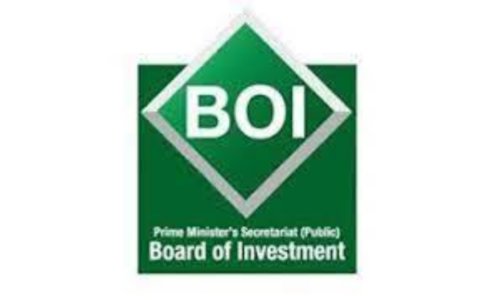• Authorities set to introduce portal where investors can submit credentials for entire financial market
• System expected to draw more investors, help country follow global anti-money laundering guidelines
KARACHI: To simplify investor onboarding and align with international anti-money laundering guidelines, the authorities are set to introduce in the next few weeks a centralised digital portal, a kind of one-stop shop that will allow users to submit their credentials for the entire financial market.
The new digital system, called the Centralised Gateway Portal, is aimed at facilitating the digital onboarding of investors in different asset classes in the regulated sectors and avoiding repeated know-your-customer (KYC) processing. The Securities and Exchange Commission of Pakistan (SECP) has already given the green light to the Central Depository Company (CDC) to set up this system.
Industry officials and experts expected the portal to draw more people to invest in Pakistan and help the country adhere to checks mandated by the Financial Action Task Force (FATF), a global body created to fight terrorism financing and money laundering.
“The Centralised Gateway Portal is actually going to change everything,” Badiuddin Akber, CDC’s chief executive officer, told Dawn. “It’s aimed at facilitating investors and envisioned to help financial institutions reduce the cost and complexity associated with managing customer data and automate their onboarding process.”
The current onboarding protocols for different asset categories vary, and a client may have to repetitively submit their details to different entities, even for identical asset classes. “Currently, each company is performing its own KYC processes, which necessitates that a person repeats the same screening every time he wants to invest with another company,” Mr Akber said.
“There is no one-stop shop available where an individual could submit their credentials and perform screening, and subsequently the same should become available for the entire financial market. We, on SECP’s advice, have developed this portal and it will be in place in the next few weeks,” he said.
An asset class is a grouping of investments that exhibit similar characteristics and that may be subject to the same rules and regulations. Common examples of asset classes include stocks, fixed income, commodities and real estate.
The Centralised Gateway Portal is a platform for financial institutions and investors, enabling them to address any onboarding issues regarding different asset classes through having a centralised account for KYC information and documentation, Mr Akber said.
“The portal’s unique approach of having a one-stop solution for various asset classes will make it easier for investors to onboard diverse asset classes via a centralised platform. In addition, the solution will help financial institutions streamline their onboarding process and manage customer data,” the CDC chief said.
This facilitation for investors has also emerged as an “achievement” for the authorities and the financial market regulators, who now are able to maintain data of the people putting money in the financial sector with all relevant details.
Dealing with PEPs
An official said that “we need to be more cautious and careful” after Pakistan’s exit last year from the FATF’s international grey list, which warrants increased surveillance for terrorism financing.
“So, this new system for the capital market actually helps Pakistan comply with the defined mechanism of the FATF. It’s the next big thing in our financial market regulations,” he said.
With the portal in place, the market regulators and operators would be able to keep a check on individuals, the official said.
Besides, while dealing with politically exposed persons (PEPs) — individuals holding prominent public roles that might be vulnerable to corruption — the market regulators and operators would remain vigilant and take all the precautionary measures that the local authorities and regulatory bodies have defined, he added.
FPM AML-Check, a subsidiary of the First Paramount Modaraba, which actually partnered with the CDC for screening Anti-Money Laundering/Combating the Financing of Terrorism (AML/CFT) checks through the newly developed portal, has built up a strong database of local PEPs.
The company says it has been extensively engaged with numerous businesses in Pakistan, facilitating their AML/CFT compliance teams in addressing common challenges for the past few years.
“During this time, FPM got valuable insights about the screening practices of the industry and was able to identify hindrances that fail businesses in adequately mitigating the risks associated with financial crimes and financing of terrorism,” said Syed Wajih Hassan, the CEO of FPM.
He said FPM’s policies to acquire PEPs information were fully compliant with the guidelines set by international bodies and best global practices.
Mr Hassan said the company had structured its PEP data according to the FATF’s definition of the term. “We have further expanded our coverage to the areas which are significant for AML compliance in consideration to the domestic norms of the country,” he said.
A high-level classification of the PEPs’ data, he said, could be found in the institutions and the areas that included government, legislative bodies, judiciary, diplomats, municipalities, state-owned enterprises, ministries and bureaucracy, law enforcement and security, political and religious groups.
“In terms of data update, PEP sources where frequent data updates are expected, the FPM research team keeps a constant watch through automated or semi-automated means and any new information found is scheduled for acquisition on an immediate basis,” said Mr Hassan.
“Sources where information is made available at regular intervals, data acquisition is planned accordingly. In cases of existing PEPs data where no new information is anticipated, the default review cycle is planned every six months. The PEPs’ data being used by FPM for AML screening is acquired from various government, administrative and third-party sources,” he said.
Published in Dawn, August 23rd, 2023














































Dear visitor, the comments section is undergoing an overhaul and will return soon.